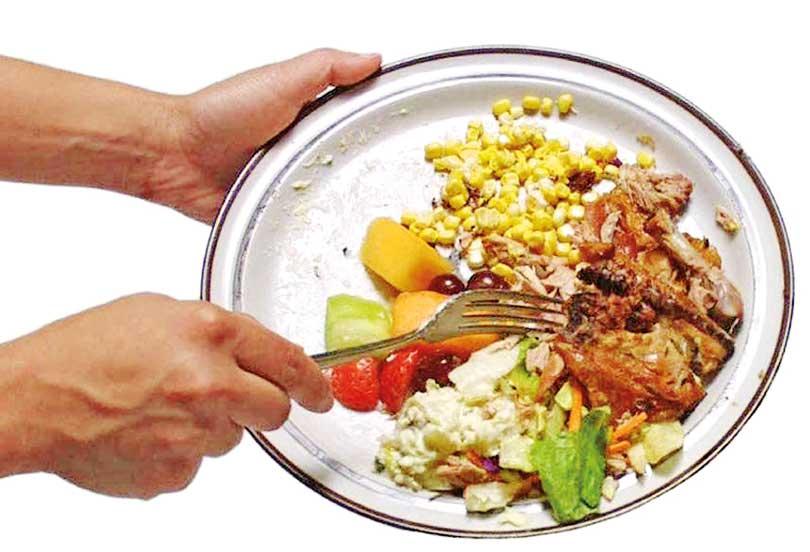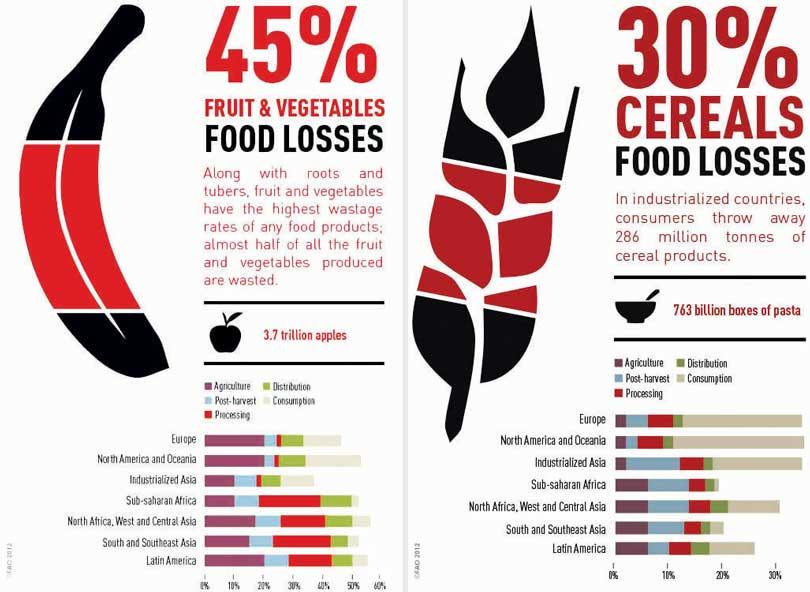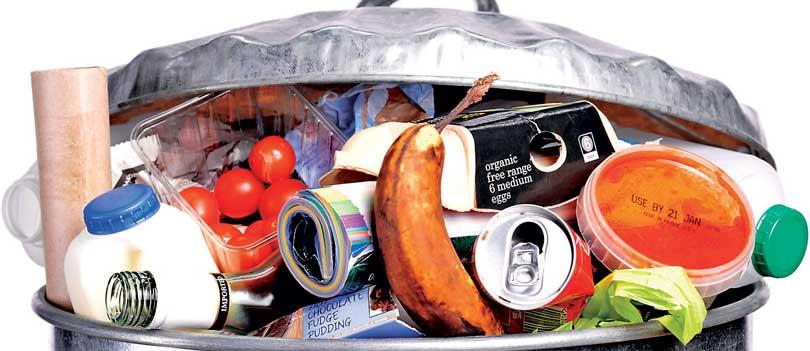Reply To:
Name - Reply Comment
 Back in 2012, a ground-breaking report from the United Nations titled ‘Food Wastage Footprint: Impacts on Natural Resources’, discovered that 1.3 billion tonnes of food is wasted across the world annually. At the same time, almost a billion people didn’t have enough to eat.
Back in 2012, a ground-breaking report from the United Nations titled ‘Food Wastage Footprint: Impacts on Natural Resources’, discovered that 1.3 billion tonnes of food is wasted across the world annually. At the same time, almost a billion people didn’t have enough to eat.
Although a practical tool-kit was released with the report that gave recommendations on how waste could be reduced at every stage of the food chain, eight years later, edible food is still being thrown away.
The Food and Agricultural Organisation of the United States explains that per capita waste by consumers is currently between 95-115 kg a year in Europe and North America, while consumers in sub-Saharan Africa, south and south-eastern Asia, throw away only 6-11 kg a year.
But even throwing away 6 kilograms of food in Sri Lanka is a cause for concern, especially since acute malnutrition and micronutrient deficiencies are found in 19.6% of the population, ranking only third behind Djibouti and South Sudan (World Food Programme). The issue was only recently highlighted again when in May, an 11-month-old baby died of malnutrition, due to extreme poverty.
Throwing away 6 kilograms of food in Sri Lanka is a cause for concern, especially since acute malnutrition and micronutrient deficiencies are found in 19.6% of the population
The reasons for food waste are varied; harvesting techniques, inadequate storage and cooling facilities, transport, the cosmetic appearance of fruit and vegetables, best before/expired labelling confusion, and the personal consumption of food whether it be at home, hotels or food vendors.

Addressing food waste is part of the United Nations Sustainable Development Goals for Sri Lanka. Target 12.3 stated that by 2030, Sri Lanka has to: Halve per capita global food waste at the retail and consumer levels and reduce food losses along production and supply chains, including post-harvest losses.
The report also mentioned that the methodology and standards to enact this goal were still in development.
Instead of an official process for dealing with food waste, individuals and businesses across Sri Lanka have taken the issue into their own hands.
Internationally, the problem is being tackled on a much larger scale.
In 2016 France introduced the Food Waste Act, essentially banning large grocery stores from throwing away excess food. Instead, any edible food must be donated to NGOs and charities that will facilitate it to the needy. Not only does it help the receivers of the food, but the supermarkets benefit as they save money in garbage collection services as well as receiving tax breaks as an incentive to donate the food. The results so far have been positive.
The French Federation of Food Banks (Who facilitate the supermarket to charity supply chain) advised that each morning more than 2,700 supermarkets send “nearly out-of-date food” to about 80 warehouses around the country, rescuing 46,000 tons a year that would otherwise be thrown away.
The UAE is tackling food waste with the help of Artificial Intelligence (AI), through a company called Winnow. Speaking to the Gulf News, Marc Zornes, co-founder and CEO of Winnow, said they were saving 1.6 million meals a year from the throwaways.
The process is quite simple, the technology can detect the type and quantity of food items that are being thrown away by a camera that’s fixed on a wall overlooking the bin. As a food item is thrown in, the camera recognises the item. The data allows commercial kitchens to track their food waste and make necessary changes to their food purchases and menus.
Already fifty of the largest kitchens in the UAE have signed up to the system with the added benefit of requiring almost no staff training.
Zornes also advised that not only could not only can they help reduce food waste but give facilities like all-day dining buffet restaurants “A good sense of what guests like to eat, versus what they don’t like. So you’re able to better match your guests’ tastes,” he said.
Coimbatore-based NGO No Food Waste alongside their regular food collection and distributing programme across Tamil Nadu, created the Zero Food Waste Wedding initiative which allows conscious couples to register their wedding as a location for the NGO to collect over-catered food.
Feeding India has estimated 40 to 50 per cent of the food served at weddings goes to waste. No Food Waste’s in Chennai alone has collected 85,000 food plates that would have gone into the trash.

